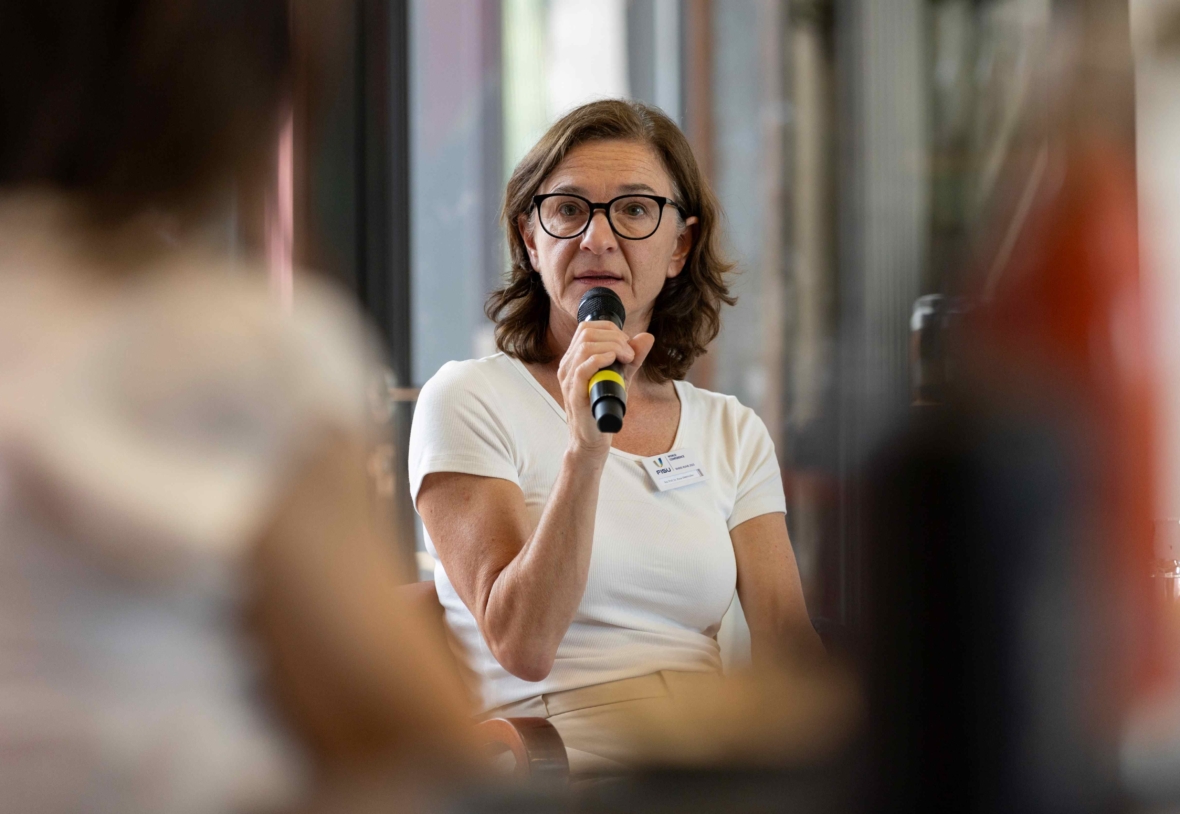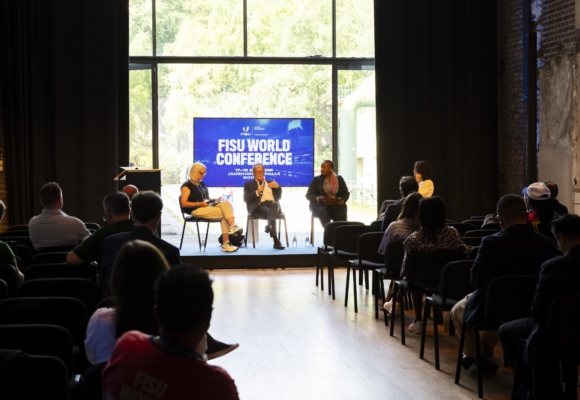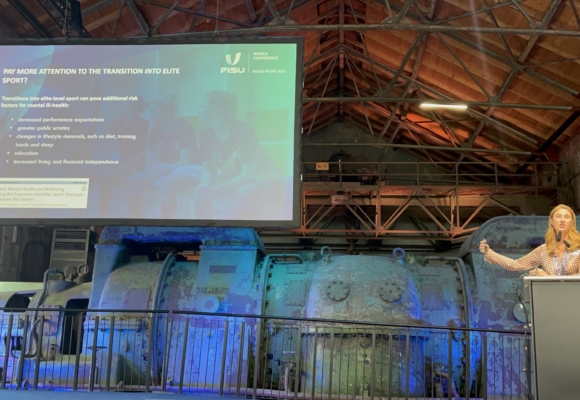At Jahrhunderthalle in Bochum, sports conversation and competition take place side-by-side. Wheelchair and 3×3 basketball student-athletes battle at the Rhine-Ruhr 2025 FISU World University Games in front of vibrant crowds inside of cool industrial gyms. While, in the venue next-door, world-renowned sports academics and professionals fill tables and presentation rooms for discussions about sport and inclusivity over a three-day gathering.
The FISU World Conference creates a space parallel to sports where collaboration and innovation can blossom. On the last day of meeting, Sunday, 19 July, Dr. Karin Volkwein-Caplan, Dr. Rosa Diketmüller, and Tokyo 2020 Paralympian Kim Robins used that space to facilitate a discussion about inclusivity in global sports.
“If you understand where the hurdles are, then you have to start working, overcoming them,” Volkwein-Caplan said. “Even if you start saying these things and researching them and publishing them, you have a lot of backlash too, so, it’s actually lots of hurdles to overcome.”
A professor at West Chester University of Pennsylvania in the United States, Volkwein-Caplan recognized short conference meetings will not eliminate large socio-economic challenges such as inclusivity issues, yet she ascertains these discussions are valuable as they create global pathways for connection and highlight areas for growth.
Robins, a wheelchair basketball player from Australia, shared the importance of creating sport spaces for everyone when pursuing inclusivity.
“I think the level of inclusion goes in both directions because it would be easy at least for disabled sport to say, ‘oh we just need to find more disabled athletes,’ but actually, you expand sport by including everyone, it’s not the other way around.”
From there the panel addressed the importance of connecting sport and education through efforts of social sport and education so more people can access the benefits of sport while at the same time, becoming educated on inclusivity practices.
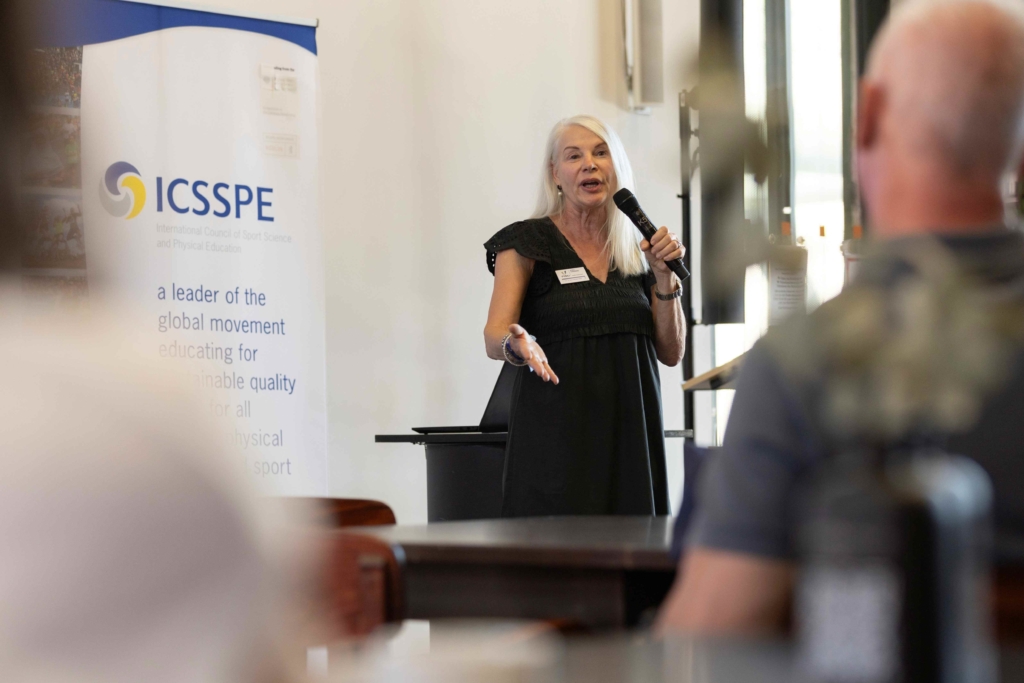
FISU Conference as a vessel to reach universities, countries
One of the delegates attending the conference was FISU Vice President Verena Burk, a professor at the University of Tübingen, in Germany. As a key part of the FISU team and sports conference veteran herself, Burk acknowledged the value of having these conversations at the Games.
“We always discuss in FISU, we are a sport organisation, we organise sport events. But on the other side, FISU is a very unique sport organisation because we are in the interface of universities. So that means we are in the interface of sport to science, sport to education.”
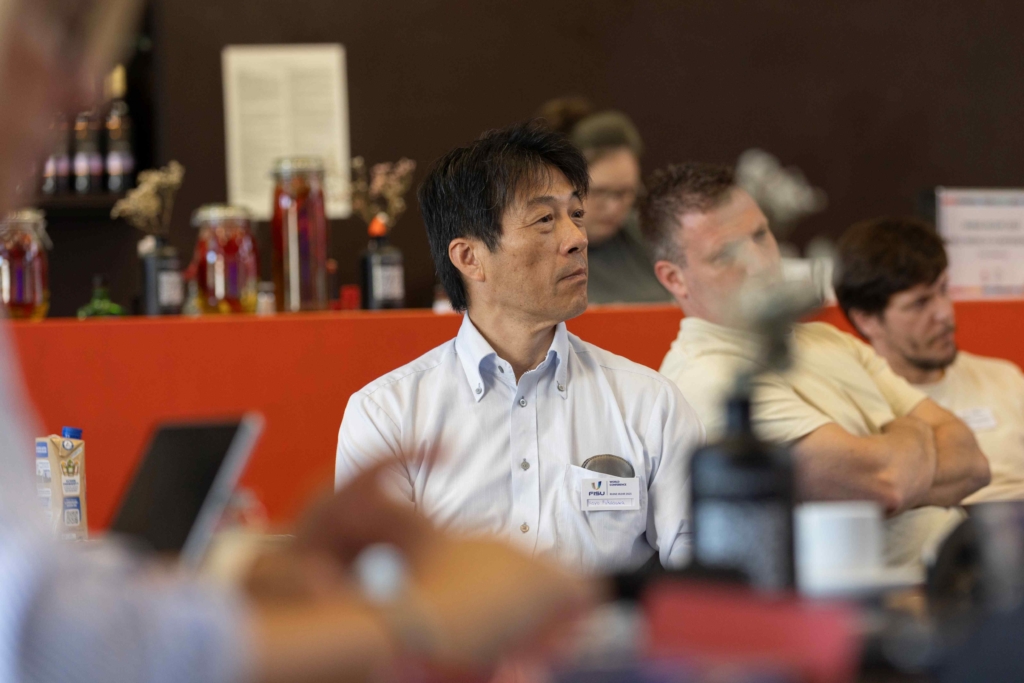
Burk recognized FISU’s influence globally while also maintaining the organisation cannot always step in and execute. Instead, it strives to be a role model.
“You know that in some countries it’s maybe difficult to implement something. So maybe we can help these countries, these federations, to put policies in place and also put programs in place.”
FISU President Leonz Eder boldly shared the same perspective: “To combine the sport event and academic conference is somehow logical. We really need to combine that, we will be foolish if we would not do that, because the Games, we attract so many people, not only spectators, but we can attract also the academia, and that’s why it goes just hand in hand.”
The conference hosted attendees from across the world from Austria to South Korea and Australia. In each case, these scholars had opportunities to exchange ideas and will leave the Games better equipped to address issues facing student-athletes at home.
The Rhine-Ruhr 2025 FISU World University Games take place from 16-27 July. Watch all the competitions live on fisu.tv. Click on the link to find the full schedule.
Written by Sarah Maat, FISU Young Reporter, Canada
The Young Reporters Programme exemplifies FISU’s commitment to more than sports competitions. At every FISU World University Games, a group of talented aspiring sports journalists are chosen to cover the competition.

We warmly thank FISU Official Partner Qiaodan Ltd. which provides remarkable uniforms to FISU Family and International Technical Officials since 2015. Qiaodan is a valuable partner for FISU as it continued to provide its support during the postponement of events due to the global pandemic, and recently extended the relationship with FISU up to and including 2025.
